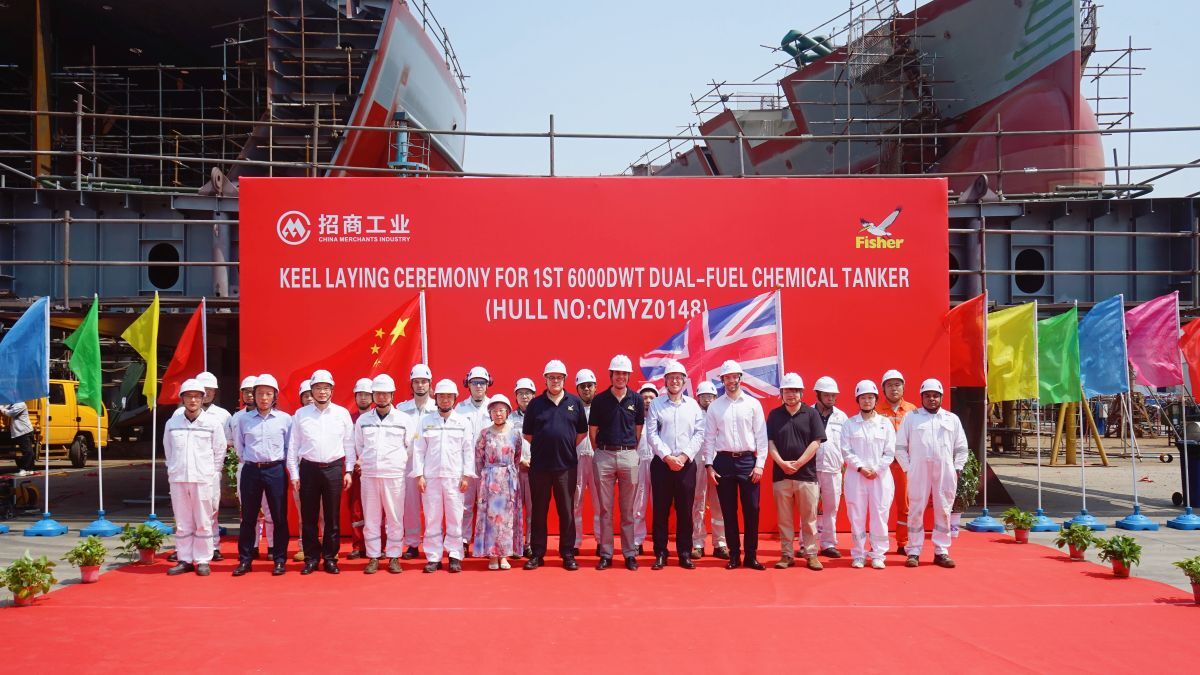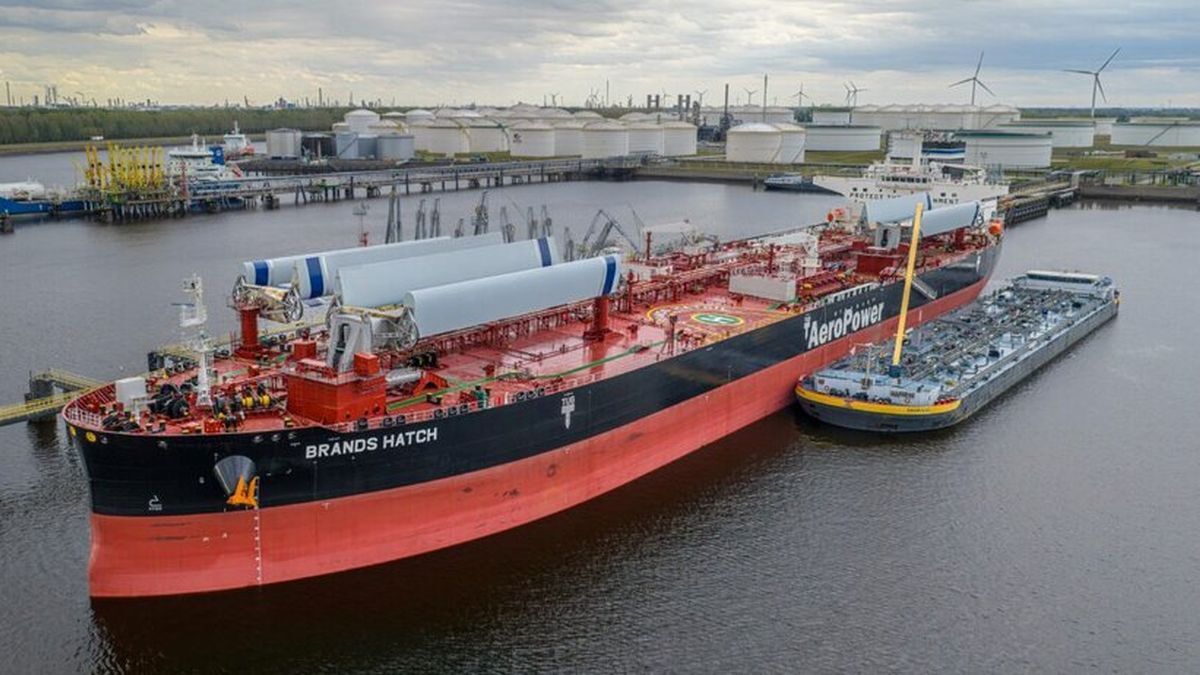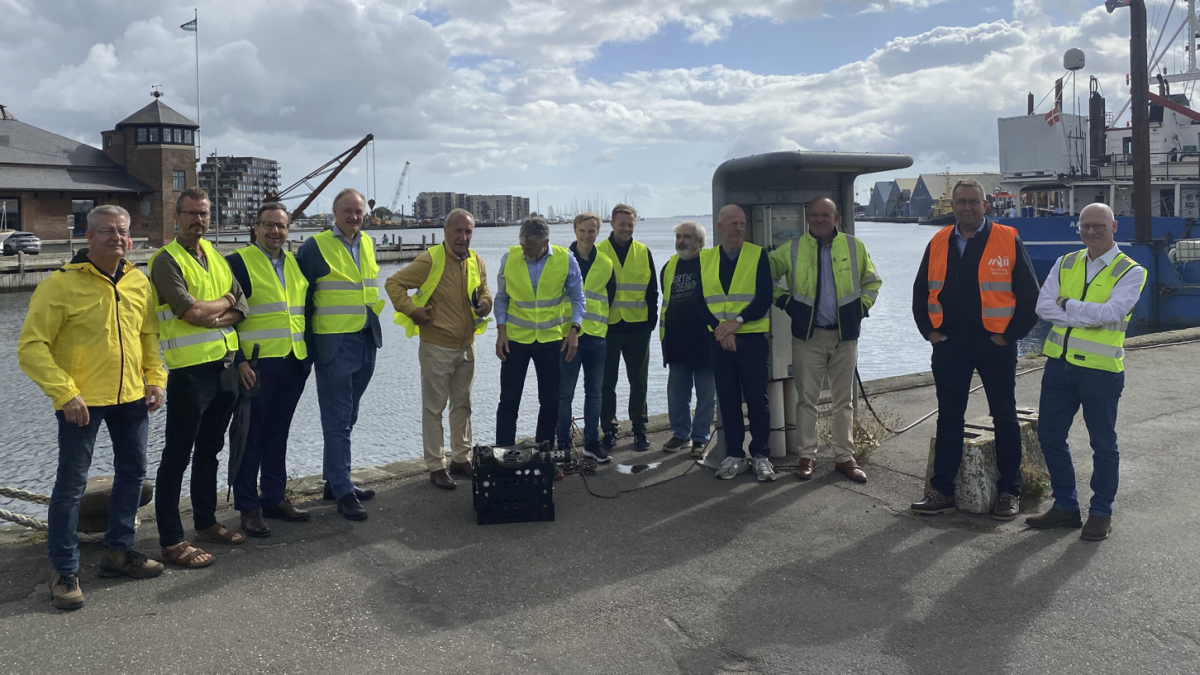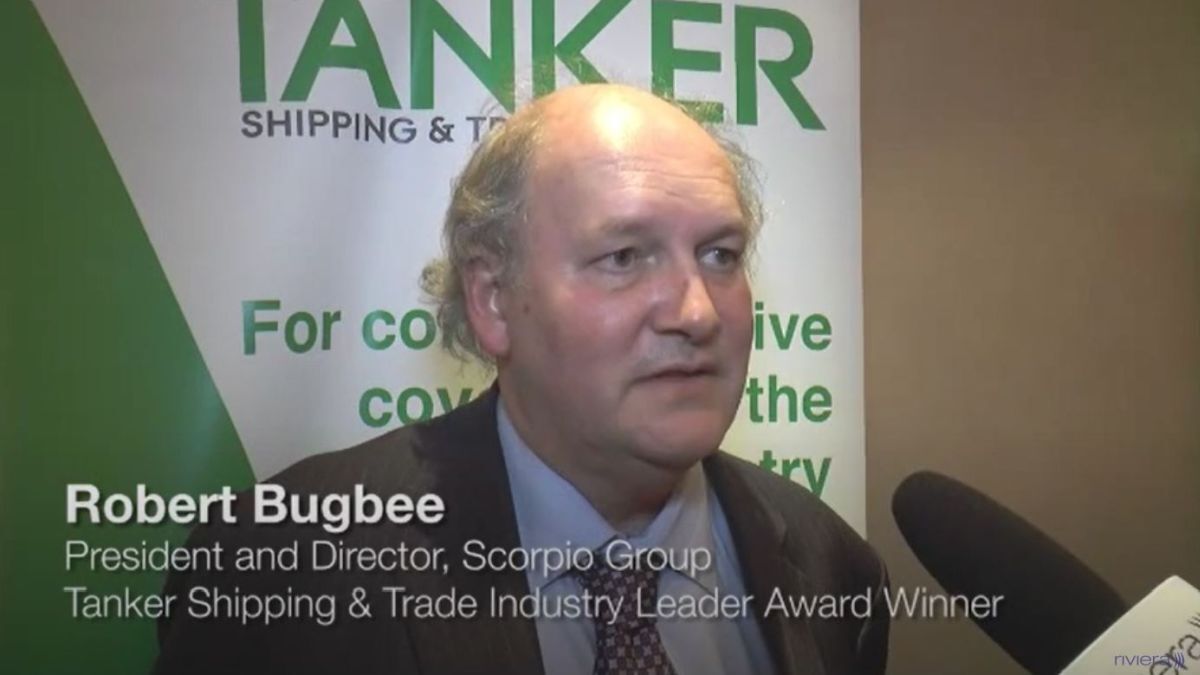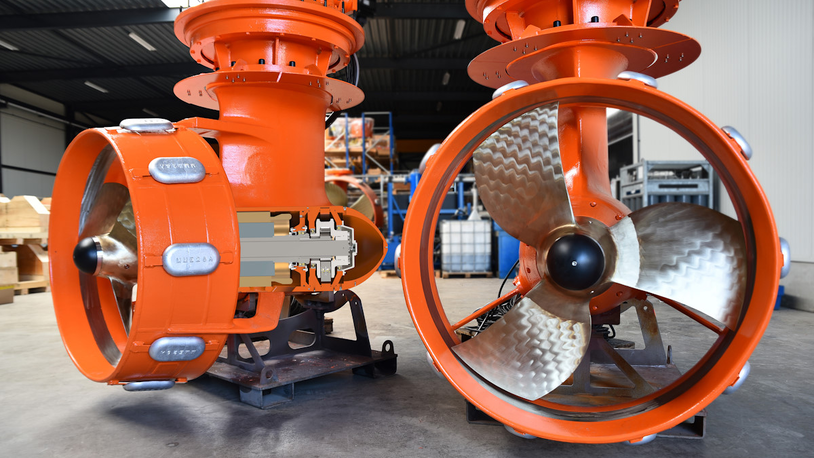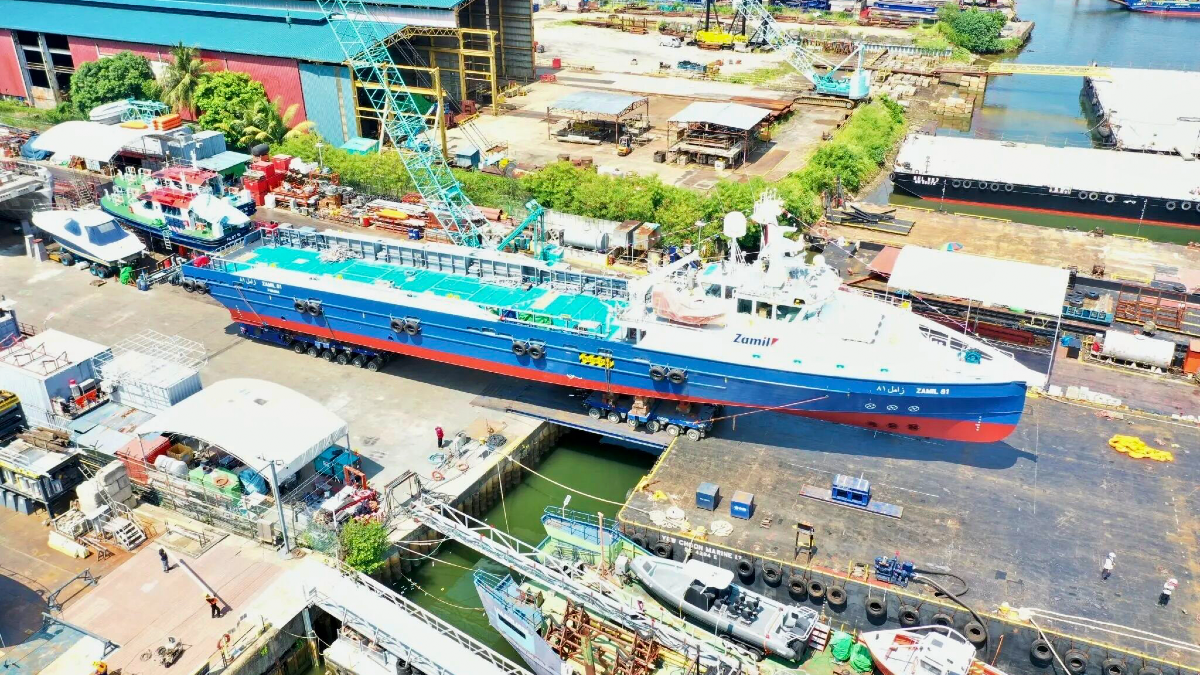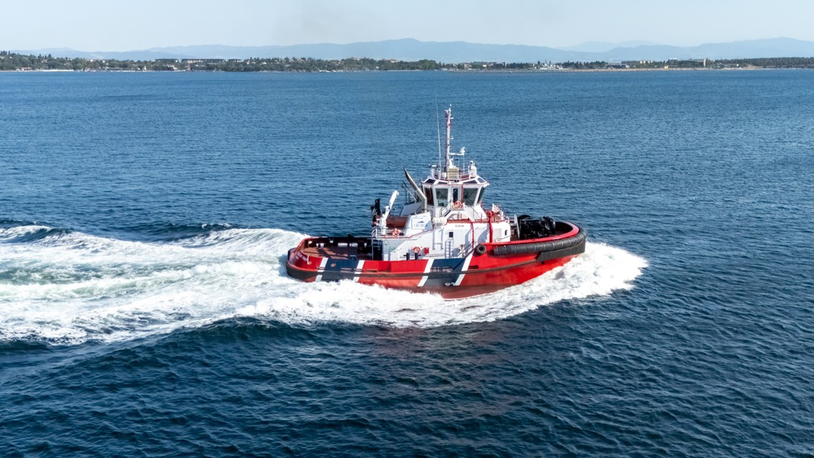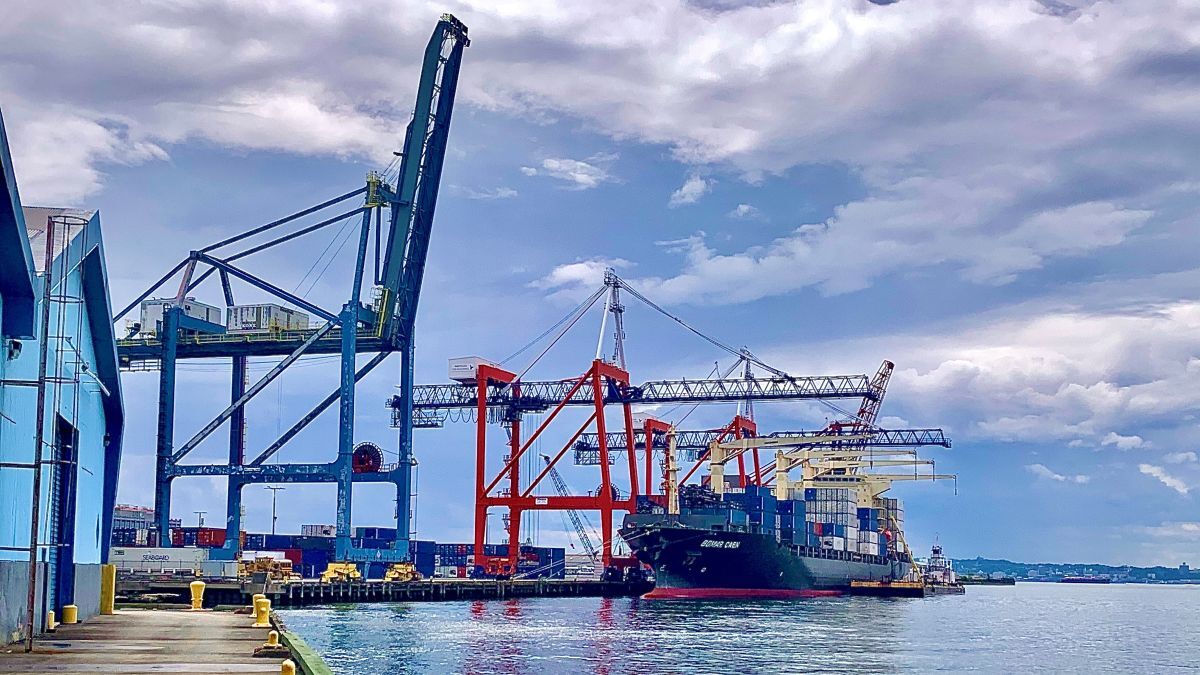Business Sectors
Events
Offshore Wind Webinar Week
Contents
Register to read more articles.
James Fisher begins building next-gen tanker
Keel laid for the first of four new chemical tankers in James Fisher’s fleet renewal programme
The construction of Orca Fisher, the first in a quartet of MarineLINE-coated chemical tankers forming part of James Fisher’s new Sealife class, has officially begun with the keel laying ceremony taking place at China Merchants Industry Yangzhou Dingheng Shipyard (YZDH) in late May 2025.
The newbuild programme marks a continuation of James Fisher’s fleet renewal strategy, with a focus on improved efficiency, reduced CO2 output, and readiness for alternative fuel propulsion.
The four vessels – Orca Fisher, Narwhal Fisher, Tiger Fisher and Dolphin Fisher – are expected to enter service from early 2026 and will serve the northwest European coastal market where demand remains steady for mid-sized chemical tankers.
James Fisher and Sons plc product line director (tankships) Michael Arkley stated the milestone “marks more than the start of a hull – it’s a continuation of our ongoing and unwavering commitment to decarbonise the fleet and strengthen operational performance for our customers.”
Mr Arkley also credited its longstanding collaboration with YZDH, classification society Bureau Veritas, and design partner Alpha Marine, noting trust had developed “across two successful newbuild programmes to date.”
The Sealife class follows the 2023 delivery of Sir John Fisher and Lady Maria Fisher, also constructed by YZDH.
Together, the six vessels account for a third of the James Fisher tanker fleet and collectively form the backbone of the company’s modernisation efforts. These ships are central to the group’s 2050 net-zero commitment, supported by a phased approach to replacing older vessels with more sustainable tonnage.
James Fisher’s investments have also extended into operational optimisation.
Speaking during the 2025 International Chemical & Product Tanker Conference in London in a session on artificial intelligence and tanker operations, James Fisher head of maritime transport division Krystyna Tsochlas said, “We are focusing on integrating digital tools that provide real-time data for informed decision-making and improved energy efficiency.”
Ms Tsochlas also noted the company’s LNG dual-fuel tanker Lady Maria Fisher had already demonstrated fuel flexibility and emissions reductions in service.
The vessel was delivered in 2023 with both LNG and marine gas oil capability, offering a transitional solution as the market navigates fuel availability and regulatory demands.
A poll conducted during the same webinar found 42% of participants considered machinery performance monitoring to be the most promising AI application area in tanker operations.
This aligns with the company’s strategy of linking digitalisation and emissions reduction.
James Fisher’s ongoing commitment to fleet renewal, alternative fuels and digital optimisation reflects a wider trend across the European coastal tanker market, where smaller operators are under increasing pressure to demonstrate tangible progress towards environmental goals while maintaining commercial flexibility.
Sign up for Riviera’s series of technical and operational webinars and conferences:
- Register to attend by visiting our events page.
- Watch recordings from all of our webinars in the webinar library.
Related to this Story
Events
Offshore Wind Webinar Week
Maritime Decarbonisation, Europe: Conference, Awards & Exhibition 2025
Offshore Support Journal Conference, Americas 2025
© 2024 Riviera Maritime Media Ltd.


